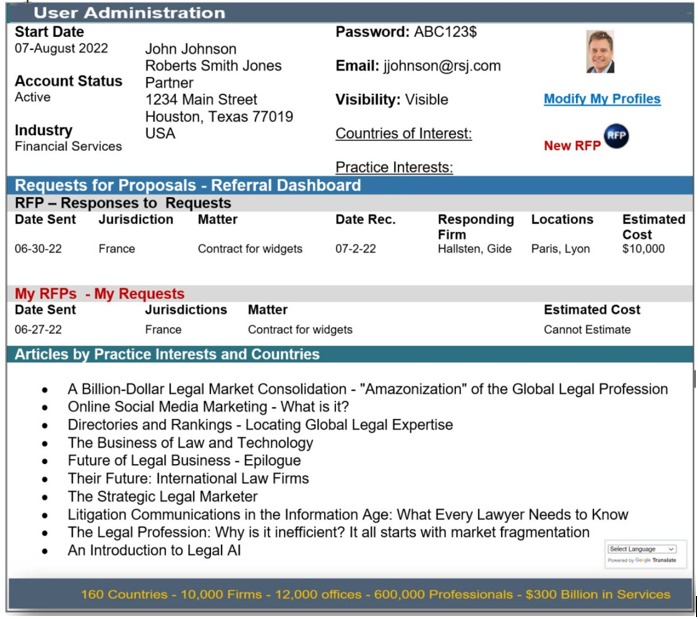Chapter 1 – Transformation Law 2025 – Law Firms of 200+ Attorneys, AI, Private Equity and the Big Four Arizona
First in a Series on the Legal and Accounting Professions
For law firms with over 200 lawyers, AI is not merely a tool—it is becoming a competitive necessity. AI underpins service delivery, client satisfaction,
operational efficiency, and innovation. When combined with the disruptive
forces of private equity and Big Four integration, the legal profession is
undergoing its most significant transformation in decades.
To remain competitive and relevant, large firms must not only adopt AI
but also rethink their service financing models, explore strategic
partnerships, and engage in proactive talent development aligned with the
digital age.
Enhancing Service Delivery in Law Firms
AI Enhancing Service Delivery in Law Firms of 200+ Attorneys - Challenges
AI's Strategic Role in Large Firms
- AI in Legal Research & Due
Diligence
- Firms like Allen & Overy and
Latham & Watkins are using AI-powered platforms (e.g., Kira,
Luminance) to rapidly process and summarize contracts and regulatory
materials.
- Predictive analytics are helping
litigation teams assess likely outcomes and costs, assisting clients with
risk-based decisions.
- Client-Facing Tools
- AI-driven chatbots and client
portals now handle a significant portion of basic client queries,
document management, and billing inquiries.
- Firms such as Baker McKenzie and
Clifford Chance are piloting AI-guided compliance tools for global
clients.
- AI and Legal Project Management
- Automated workflow tools
increase efficiency in project scoping, time management, and deliverable
tracking.
- Talent and Billing Models
- AI tools assess profitability by
practice group, lawyer, and client—feeding into flexible billing models
including fixed-fee, value-based, and subscription models.
- AI-Assisted Innovation Units
- Some top-200 law firms have
launched internal AI labs and innovation hubs (e.g., Reed Smith’s Gravity
Stack), developing bespoke tech for legal problems.
The Impact of Private Equity on Law
Firm Competition
Private equity (PE) is now a major player in the legal sector, primarily
through:
- Capital Injections into ALSPs and
Law Firms: PE firms have invested in entities like UnitedLex, Elevate, and
Consilio, enabling these providers to scale globally and compete with the
largest law firms for corporate work.
- Competitive Disruption: With capital backing, ALSPs
offer faster, cheaper services including contract lifecycle management,
e-discovery, and litigation support—directly pressuring traditional firms
to reduce cost structures.
- Buyouts and Equity Partnerships
in Law Firms: In jurisdictions where permitted (e.g., the UK and like Arizona),
PE firms have acquired equity stakes in law firms or affiliated
structures.
Big Four Firms Authorized to Practice
Law in Arizona
In a historic move, Arizona became the first U.S. state to eliminate Rule
5.4 of the ABA Model Rules, permitting nonlawyer ownership and fee sharing in
law firms. This legal reform has enabled:
- Big Four Entry into Legal
Practice: PwC, Deloitte, EY, and KPMG are now authorized to deliver legal
services in Arizona through regulated entities, marking a shift that could
spread to other jurisdictions.
- Market Realignment: Their legal services divisions,
previously operating globally but restricted in the U.S., can now offer
fully integrated services in tax law, compliance, employment law, and
transactional matters.
- Implications: This development intensifies
pressure on traditional firms, particularly midsize firms, and accelerates
the convergence of law and accounting services.
More details on this trend can be found via the Arizona Supreme Court (https://www.azcourts.gov)
and the Center for Innovation's reports on legal regulatory sandboxes.
Functional Integration and
Consolidation
As described in the Defragmenting the Global Legal Profession
report, law firms, networks, ALSPs, and consultants are increasingly
collaborating through platforms like GlobalLegalLeaders.com. These
platforms promote transparency, facilitate referrals, and create efficiencies
through AI, data-driven quality metrics (see QVM framework), and access to
expert directories.
The competitive playing field is no longer just “law firms vs. law
firms.” It is a multidimensional legal ecosystem, with AI, PE, ALSPs, networks,
and Big Four firms reshaping professional service delivery.
Conclusion: AI as a Catalyst of
Strategic Transformation
For law firms with over 200 lawyers, AI is not merely a tool—it is a
competitive necessity. It underpins service delivery, client satisfaction,
operational efficiency, and innovation. When combined with the disruptive
forces of private equity and Big Four integration, the legal profession is
undergoing its most significant transformation in decades.
To remain competitive and relevant, firms must not only adopt AI but also
rethink their service models, explore strategic partnerships, and engage in
proactive talent development aligned with the digital age.





 Software
Software Law
Law Legal
Legal






